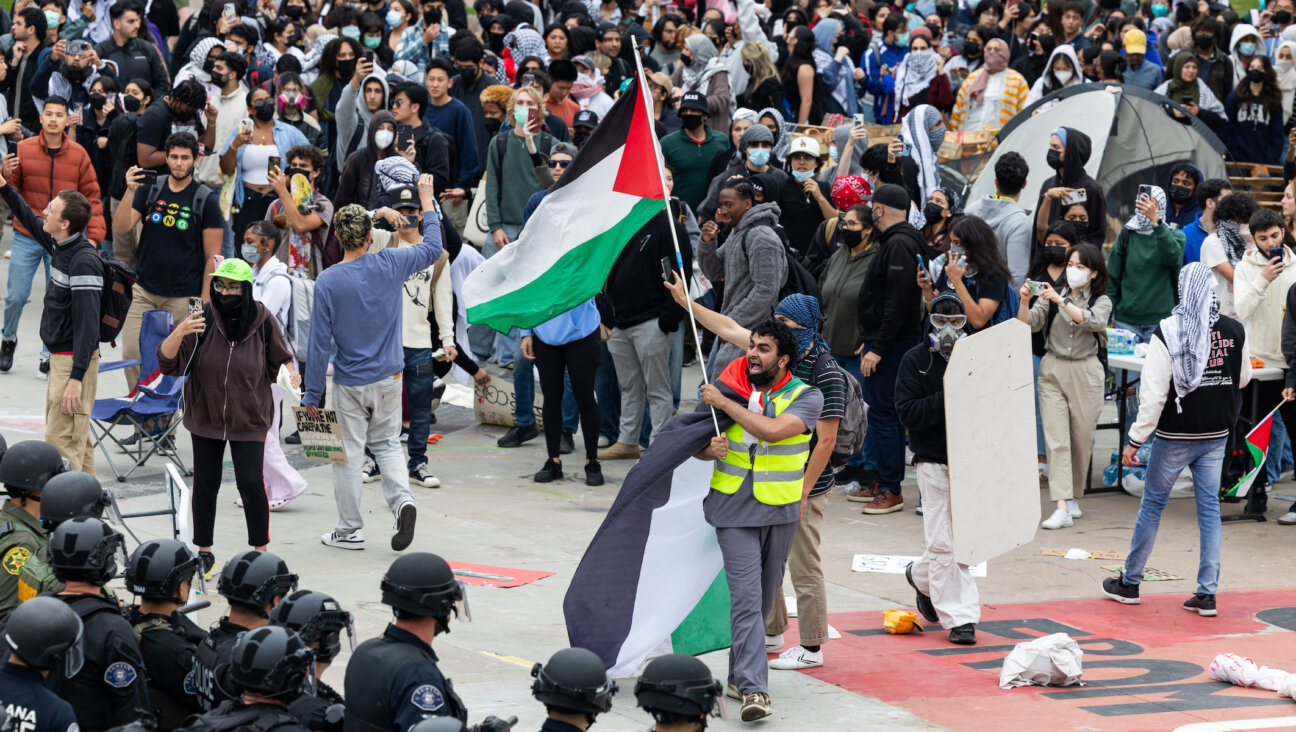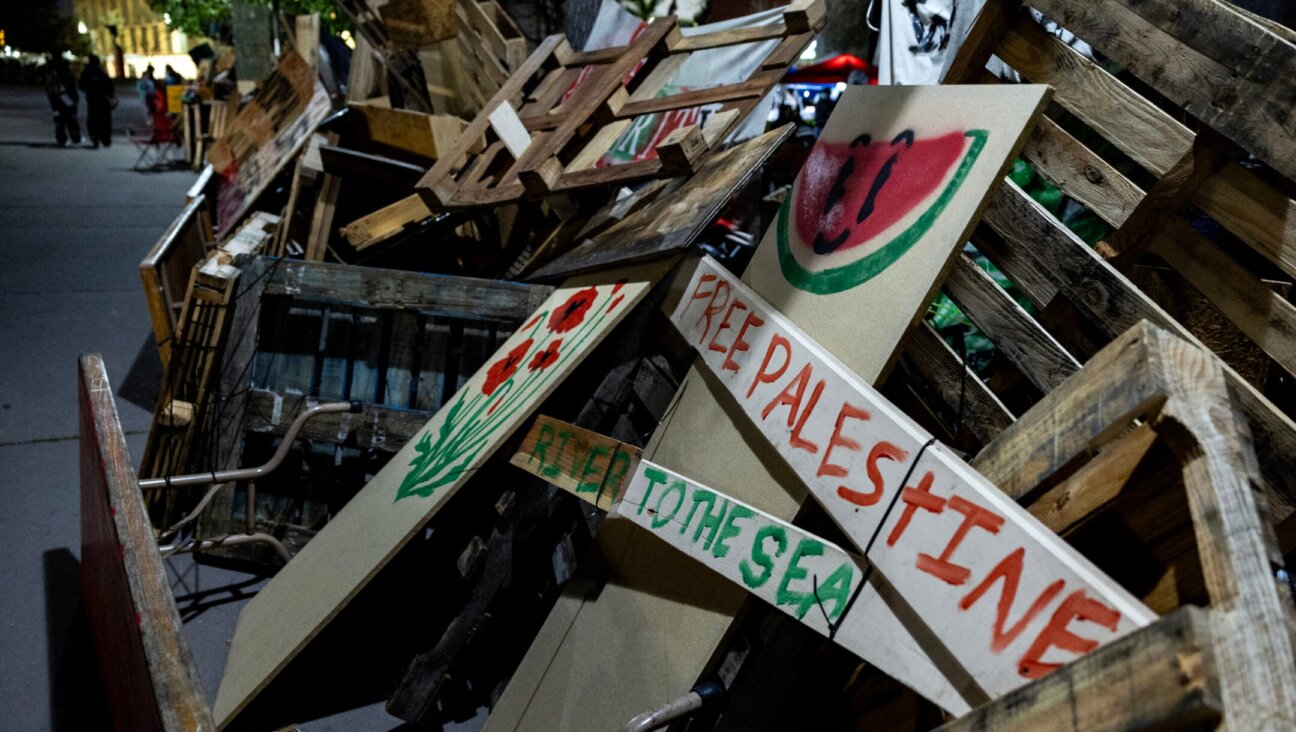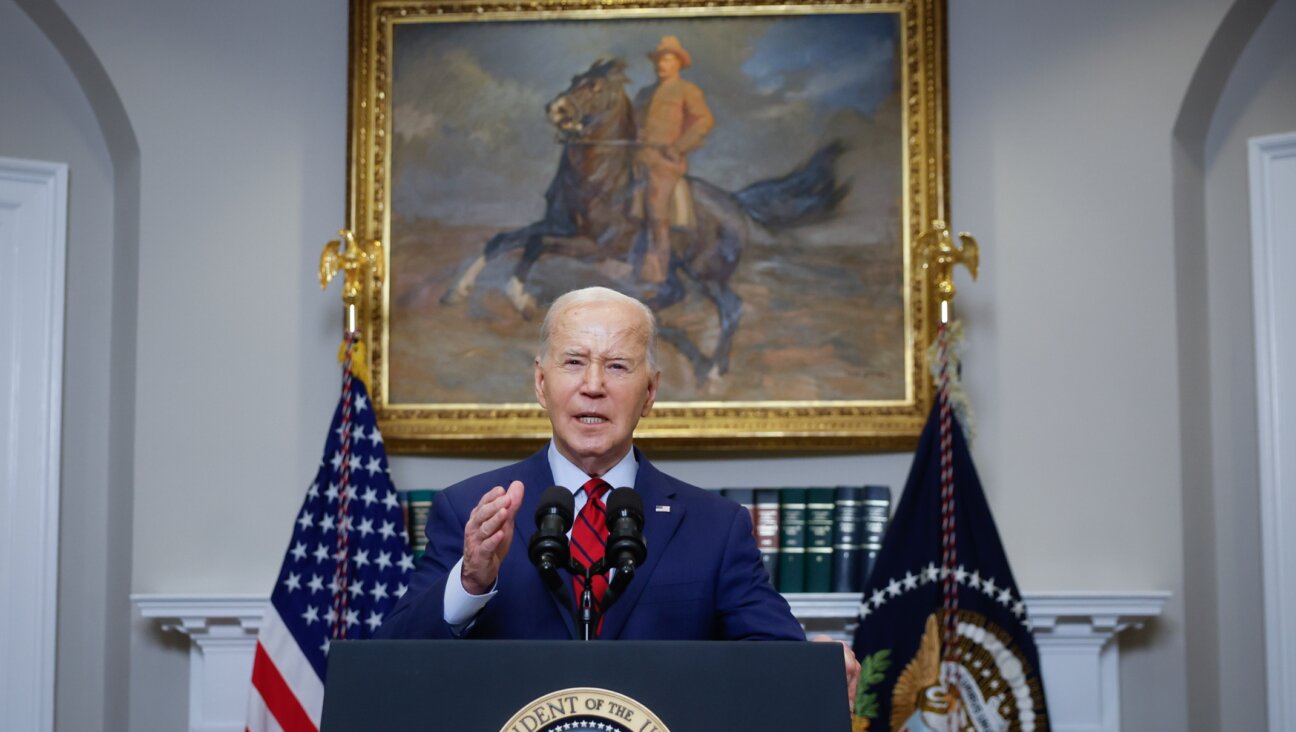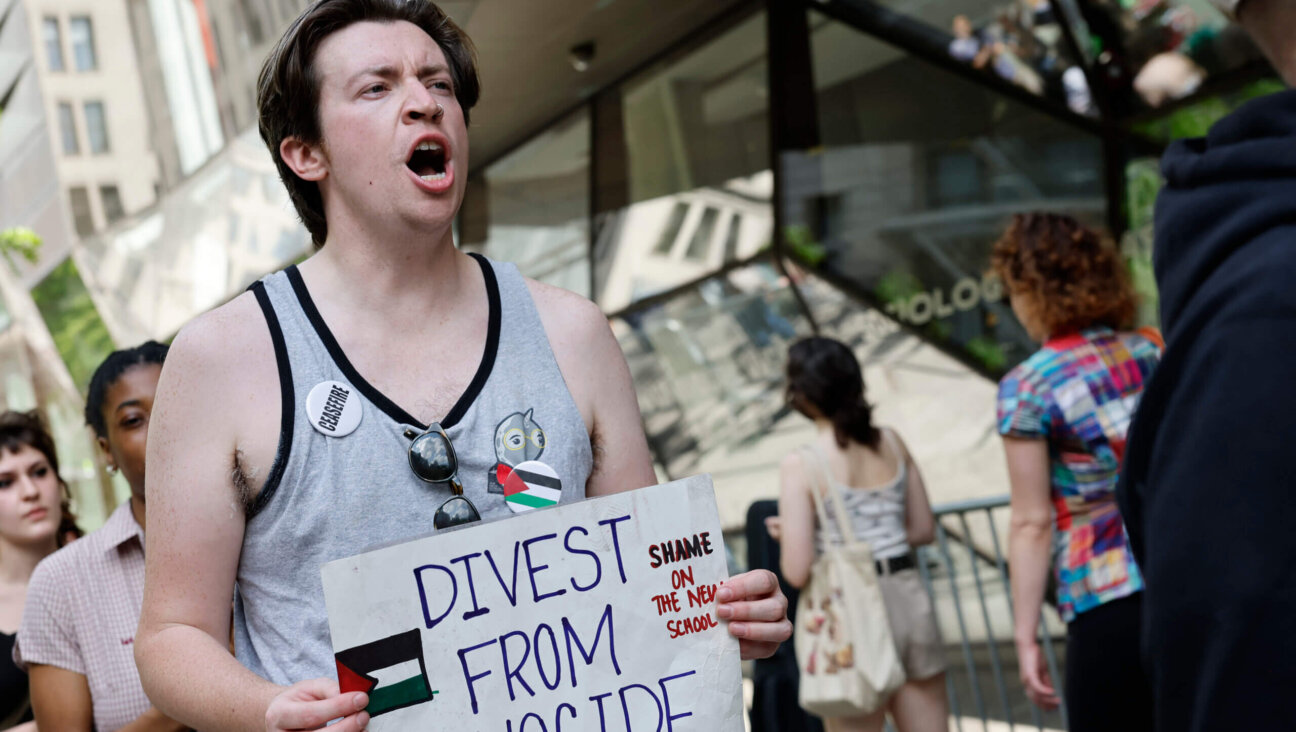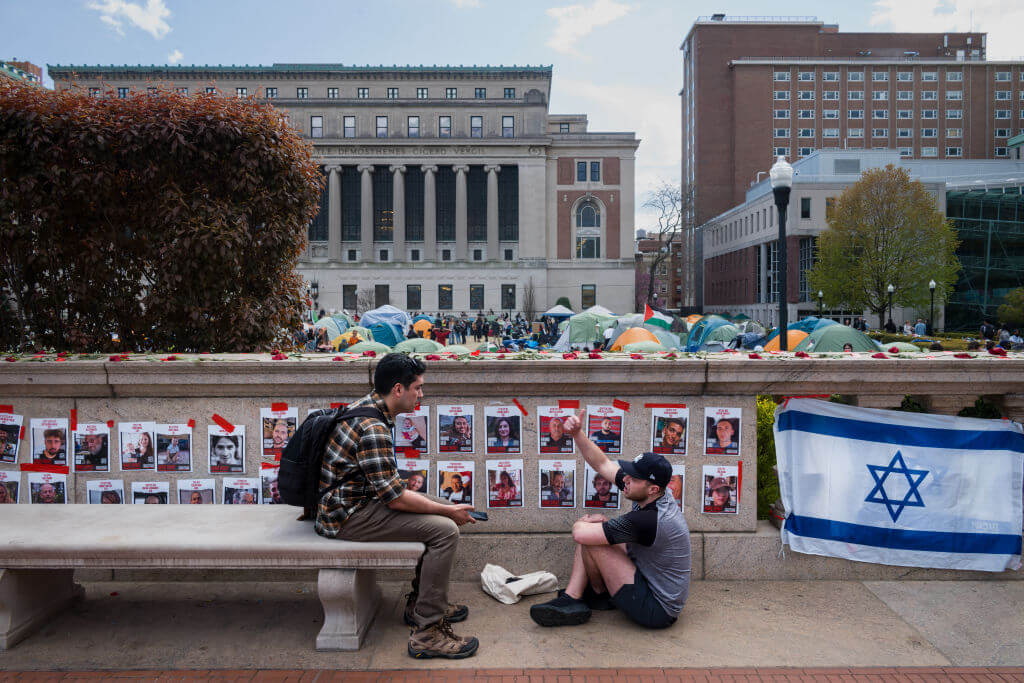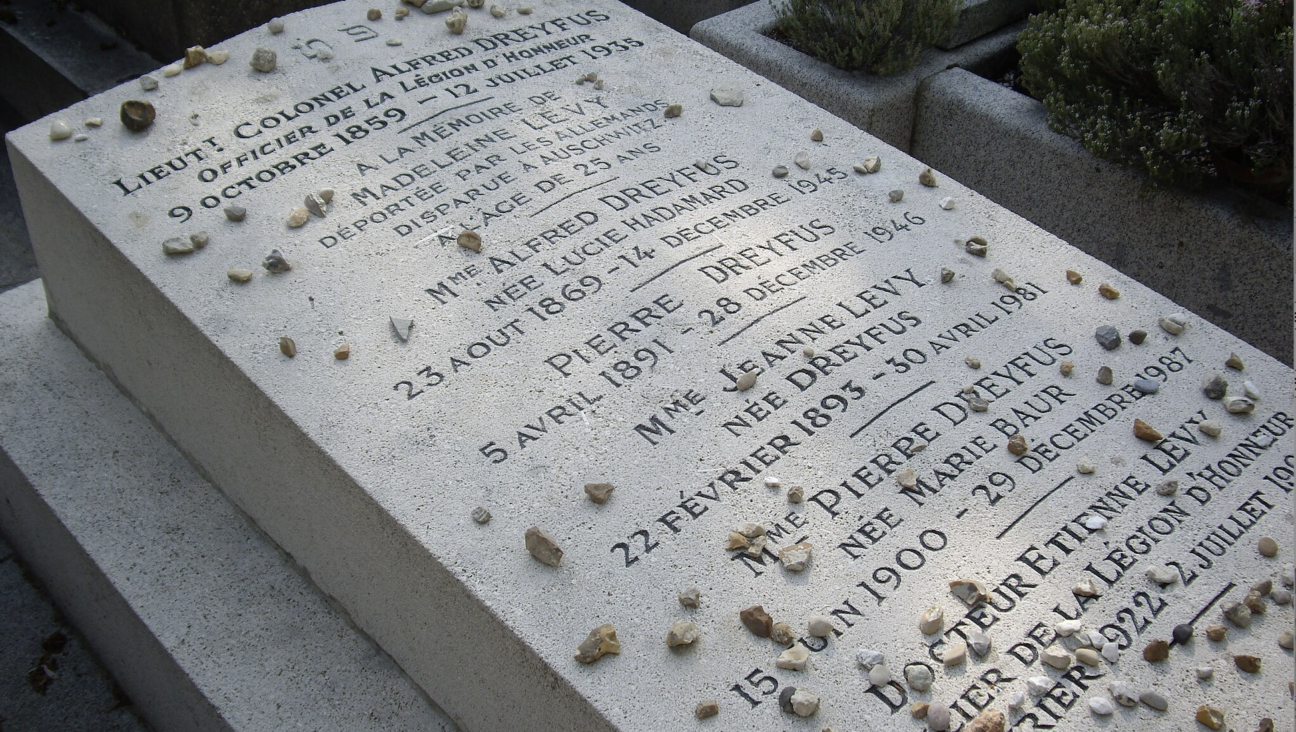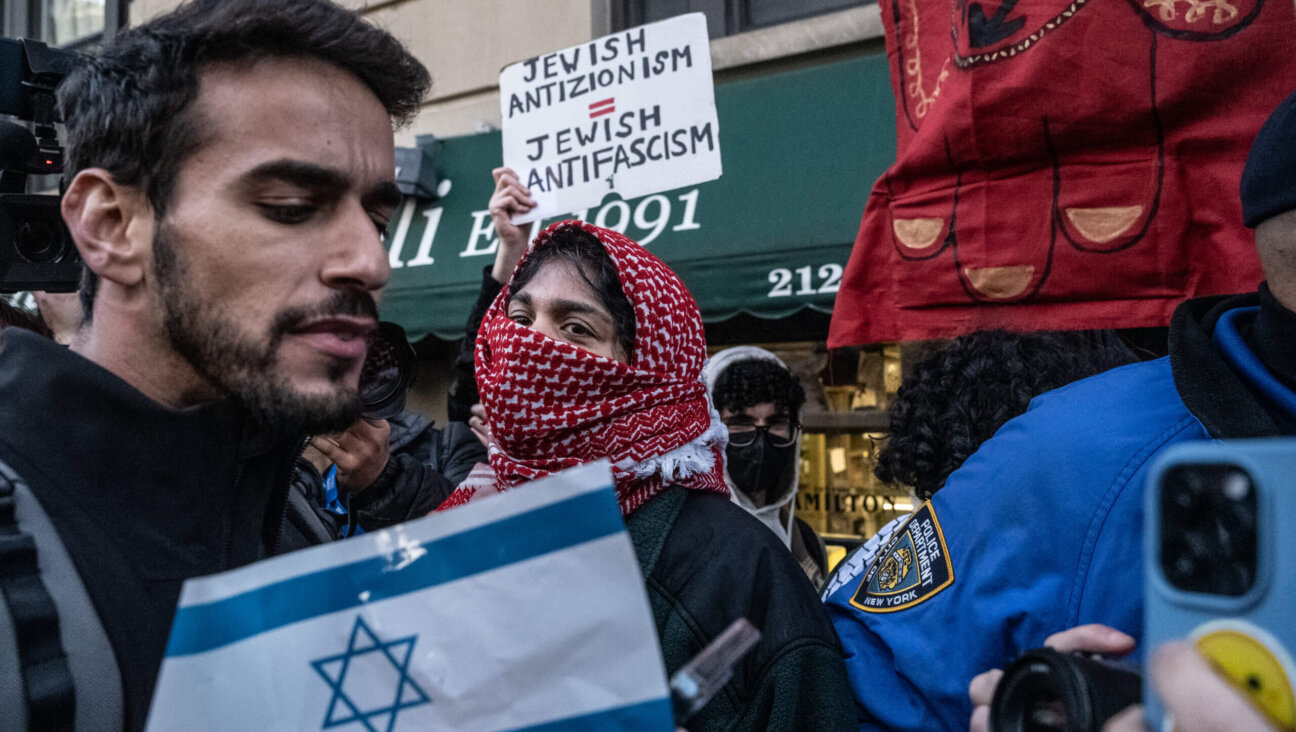Violent antisemitism on the rise in Germany, watchdog finds
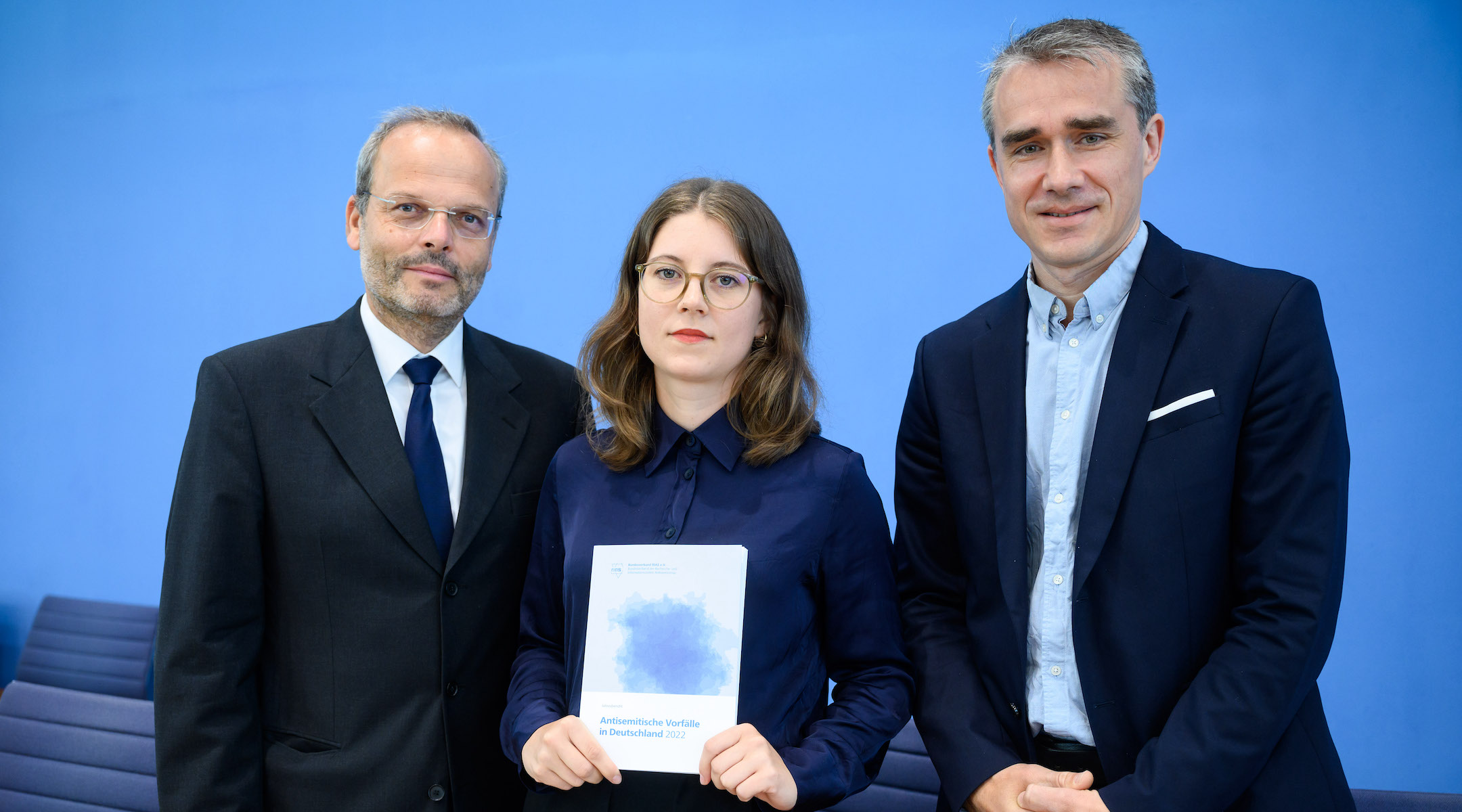
From left to right: Felix Klein, Germany’s antisemitism monitor; Bianca Loy, co-author of the RIAS report; and Benjamin Steinitz, executive director of RIAS, shown in Berlin with the organization’s 2022 antisemitism report, June 27, 2023. (Bernd von Jutrczenka/picture alliance via Getty Images)
BERLIN (JTA) — Violent antisemitism is on the rise in Germany, according to a report released today by a Berlin-based watchdog organization with branches around the country.
According to the report on “Antisemitic Incidents in Germany 2022” from the Federal Association of Research and Information Centers on Antisemitism (RIAS), while the overall number of incidents dropped slightly from the previous year, nine incidents were categorized as “extremely violent,” up from six in the previous year. It was the highest total on record since 2017, when the annual reporting began.
The total number of antisemitic incidents RIAS recorded was almost 11% lower than in 2021, which had a total of 2,773, but 26% higher than in 2020, when the total was 1,957.
The extremely violent incidents included shots fired in November 2022 at the entrance of the historical rabbi’s house at the Old Synagogue in Essen. The category includes physical attacks as well as attempted attacks. In all, 65 antisemitic assaults were counted in 2022, down from 70 in the previous year.
RIAS director Benjamin Steinitz said Jewish communities still need to improve their security given “the high threat posed by Islamist and right-wing extremist actors.”
State investigators have linked some incidents, including the one in Essen and another in Bochum, to actors working for the Islamic Republic of Iran.
Steinitz said Germany must “take action against Iran’s state-coordinated terrorism and consistently advocate for the inclusion of the Revolutionary Guards on the EU terror list.”
Whether violent or not, antisemitic incidents have a chilling effect on Jewish life, Bianca Loy, co-author of the study, told the Deutsche Welle public news agency. “They can significantly cloud the feeling of security among Jews,” she said.
In Hamburg, according to the RIAS press statement, a café clerk made an antisemitic comment about a patron’s kippah as he was paying: “Yes, you can tell he has money by his hat. They always have enough money.”
The report said that in 105 cases, Holocaust memorials or commemorative signs were vandalized in 2022. In January in Weimar, commemorative “stumbling stone” memorials, marking the last place where Jews lived before deportation, were smeared with grey paint and scratched. In September, several signs at the Ahlem memorial in Hanover were damaged by graffiti.
Last November, in a former east German city, a right-wing extremist group attacked and insulted attendees at an event hosted by an anti-racist association, throwing beer bottles and stones and yelling antisemitic insults. Some repeatedly gave the Hitler salute, which is illegal in Germany, and shouted: “Come out, you bloody Jews!”
For the first time, the RIAS report includes statistics and analysis from 11 German states. It gives a broad nationwide picture of antisemitic incidents as well as other forms of racism and discrimination, classifying incidents as physical, verbal or written, and by degree of violence.
Many incidents in 2022 were related to conspiracy theories, particularly in the context of protests against coronavirus prevention measures.
RIAS reported 65 violent incidents in 2022 plus 186 cases of targeted damage of property, 72 threats, 1,912 cases of abusive behavior (including 426 gatherings) and 245 antisemitic mass mailings.
This article originally appeared on JTA.org.

I hope you appreciated this article. Before you go, I’d like to ask you to please support the Forward’s award-winning, nonprofit journalism during this critical time.
Now more than ever, American Jews need independent news they can trust, with reporting driven by truth, not ideology. We serve you, not any ideological agenda.
At a time when other newsrooms are closing or cutting back, the Forward has removed its paywall and invested additional resources to report on the ground from Israel and around the U.S. on the impact of the war, rising antisemitism and the protests on college campuses.
Readers like you make it all possible. Support our work by becoming a Forward Member and connect with our journalism and your community.
Make a gift of any size and become a Forward member today. You’ll support our mission to tell the American Jewish story fully and fairly.
— Rachel Fishman Feddersen, Publisher and CEO
Join our mission to tell the Jewish story fully and fairly.







